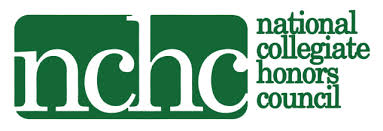Frequently Asked Questions
Shortly, no. The Honors College offers coursework that can be used to satisfy six the of seven UNM General Education requirements, so the curriculum can easily fit into your 4-year curriculum schedule.
- Students will need to 1) be admitted to the Honors College to register for Honors College courses. Alternatively, if a student is only interested in taking a class but not interested in applying to the college, they will need to obtain the individual instructor’s permission.
- The Honors College offers a variety of courses from 1000-level (Legacies) for first-year Honors College students to 400-level courses from upper-classmen. Many of the 1000 and 2000-level courses can satisfy UNM General Education requirements. Please schedule an appointment with the Honors College Academic Advisor in Student Hub or visit our Honors College Course Previews page to see upcoming course offerings.
- Students are only required to complete specific Honors College coursework determined by their selected credential (I.e., Honors College Certificate, Honors Scholar Distinction, etc.). Depending on the student’s chosen credential, they may take a certain amount of non-Honors College credit hours to satisfy their credential requirements.
- If a student is admitted to the Honors Interdisciplinary Liberal Arts (HILA) BA program, their program will primarily comprise of Honors College coursework.
- If you have any questions or concerns, please reach out to the Honors College Academic Advisors at honorsadvisors@unm.edu.
- The Honors College courses are offered through a small seminar-styled format. Enrollment is limited to 18 students per class, averaging at 15 students per course. This style of instruction allows for students to receiving greater attention and promotes strong relationship-building between the instructor and the student’s peers.
- While most classes at UNM are discipline-specific (i.e., Physics courses will only focus on physics), Honors Courses are interdisciplinary focused, bridging multiple areas of study into the classroom. In the Honors College, you may find a class about the legend of King Arthur which deals with not only literature and history, but also philosophy and sociology. Through this unique approach, students strengthen their critical thinking skills and analytical skills.
- Honors College courses are based around seminar discussion of readings and ideas, rather than lecture; many classes also offer students a hand-on learning experience through a variety of projects. There are no exams in the Honors College; rather, students are expected to tackle challenging readings, write and revise substantive papers and research essays, and engage in meaningful discussion and projects.
- Departmental honors courses are a completely different experience. Each UNM department offers honors options; however, these options are typically restricted to upperclassmen who are majoring in a specific program (E.g. An honors course in the chemistry department will focus primarily on chemistry). Departmental honors courses typically include the completion of a thesis.
- The Honors College offers a wide range of courses at all level that are interdisciplinary, addressing topics and problems from a variety of perspectives. For example, exploring topics of sustainability through the lens of biology, social, economics, and fine art. This approach helps foster critical thinking and problem-solving skills that are not typical of a discipline-specific course.
Certainly not, Honors College course are applicable to all students, regardless of their discipline. Our student population encompass many STEM-oriented interests. The Honors College is a place for all students to explore and bridge their academic curiosities, enriching their undergraduate experience and diversifying their job outlook.
Honors College credentials are intended to compliment a student’s program(s) of study. The Honors College focuses on interdisciplinary studies, bringing together the concerns and approaches from a variety of disciplines. We encourage students to take classes in Honors that are outside their “comfort zone”, but we also foster the kind of investigation and inquiry that assists students in making connections between their chosen specialization and other fields of study. This generates two specific benefits for students: they are exposed to ideas and methods they might not otherwise encounter, and their sense of the value and relevance of their chosen specializations is expanded.
- The Honors College utilizes a holistic admissions process. Students are encouraged to aim for the highest High School cumulative GPA possible; however, we understand that excellence is not grounded solely in academic rigor. Students are provided the opportunity to expand on their connection to the 3 Pillar of the Honors College: Community, Creativity, & Curiosity. Standardized test scores (e.g. ACT, SAT) are not mandatory for admission.
- Students who have completed at least 1 semester at UNM are expected to have a 3.2 cumulative GPA, however, all students are welcome to apply.
- The Honors College Admission application



Social Media
For news, information, prizes and more fun stuff follow us on our social media!
Honors College Resources